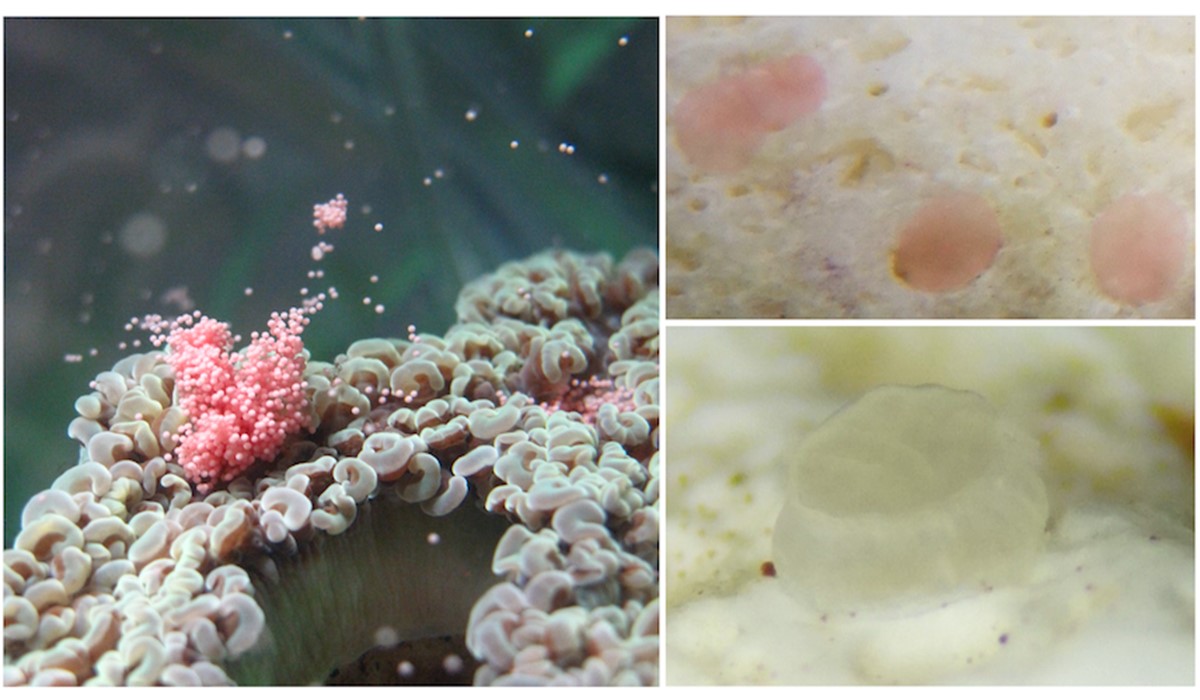Knowledge of early life histories of scleractinian corals is essential for ecological studies and development of aquaculture techniques. The study documented the process and time course of early development of a scleractinian coral, Fimbriaphyllia ancora (Order Scleractinia, Family Euphyllidae). Observations of spawning revealed that F. ancora releases positively buoyant eggs. Investigation of the changes in lipid and sugar levels during early development showed that eggs are rich in wax esters, and that the wax ester concentration decreases significantly in planulae. The eggs are also rich in glycogen, and that the glycogen concentration increases as development progresses. Furthermore, substrates that encourage planulae to settle were identified. F. ancora planulae prefer to settle on dead coral debris, compared to other substrate materials, such as plastic, glass, ceramics, and crustose coralline algae. This study provides valuable information on larval biology of scleractinian corals.
